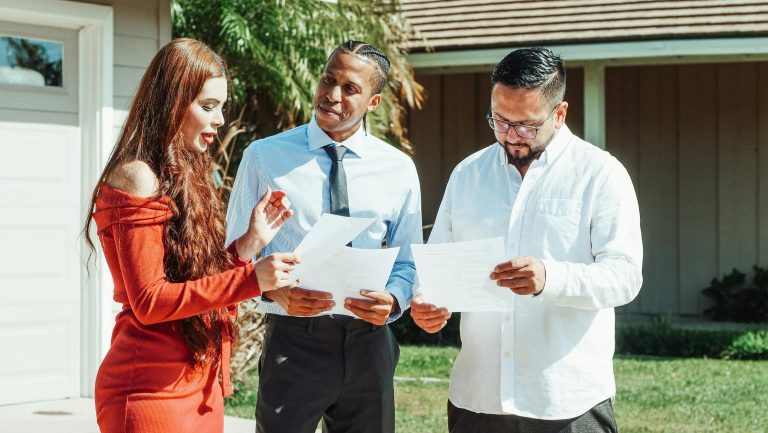Living Without a Lease? Know Your Tenant Rights & Landlord Limits

Many renters assume that if there’s no written lease, they have no legal protection. That’s not true. Even without a formal contract, tenants still have rights under state and local landlord-tenant laws. Whether you’re paying rent month-to-month, staying after a lease expires, or living under a verbal agreement, the law still recognizes your tenancy and protects you from unfair treatment.
Knowing your rights as a tenant without a lease can prevent misunderstandings, protect you from unlawful eviction, and help you maintain a stable living arrangement. This article explains the legal rights, responsibilities, and common issues tenants face when renting without a written lease—and how to handle them effectively.
Understanding Tenancy Without a Lease

A tenant without a lease isn’t necessarily an illegal occupant. The arrangement simply means that there’s no written contract, but there may still be an oral or implied agreement between the landlord and tenant.
Common Types of Tenancies Without a Lease
- Month-to-Month Tenancy:
The tenant pays rent monthly and can continue to do so indefinitely unless either party gives proper notice to end it. - Tenancy at Will:
The tenant lives in the property with the landlord’s permission, but there’s no defined end date or specific terms. Either party can end it with reasonable notice. - Tenancy at Sufferance (Holdover Tenant):
When a tenant stays after the lease expires without the landlord’s consent but continues paying rent, the landlord can choose to accept payment or begin eviction.
Even if you have no written lease, these arrangements are recognized by law as legal tenancies, giving you enforceable rights as long as you comply with your responsibilities.
Legal Rights of Tenants Without a Lease
Even without a signed agreement, you are not powerless. Tenants are still covered by state and local housing laws that regulate eviction, habitability, privacy, and rent collection.
1. Right to a Safe and Habitable Home
Landlords are legally required to provide a home that’s livable and meets basic safety standards. This includes:
- Functioning heating, plumbing, and electrical systems.
- A roof and structure that don’t leak or pose safety risks.
- Sanitary conditions free from pests and mold.
- Adequate locks, smoke detectors, and running water.
If your landlord fails to maintain the property, you can:
- Send a written repair request with photos or details.
- Contact local housing inspectors if the landlord ignores the issue.
- In some states, withhold rent or pay for the repair and deduct the cost (check local laws first).
2. Right to Proper Notice Before Eviction
Even without a lease, a landlord cannot evict you without proper notice.
Most states require:
- 30 days’ written notice for month-to-month tenants.
- 60 days’ notice if you’ve lived in the property for more than a year.
- A formal court process for eviction—self-help evictions (like changing locks or cutting utilities) are illegal.
If your landlord tries to remove you without notice or court approval, contact your local housing authority or a tenant rights organization. You have the legal right to remain in the property until the eviction is lawfully processed.
3. Right to Privacy and Peaceful Enjoyment
Landlords cannot enter your home whenever they wish. Tenants—lease or no lease—are protected by the right to privacy and quiet enjoyment of their living space.
Most states require landlords to give 24 to 48 hours’ notice before entering for:
- Inspections.
- Repairs or maintenance.
- Showing the property to potential renters or buyers.
Emergency situations (like fire or water leaks) are exceptions. If your landlord repeatedly enters without notice, that could be considered harassment, and you may have legal grounds to file a complaint.
4. Right to Fair Rent Practices
Without a lease, rent is typically paid on a monthly basis according to the verbal or implied agreement between you and your landlord.
Key points to know:
- Landlords cannot raise rent without notice—most states require at least 30 days’ notice for any rent increase.
- Rent hikes must comply with state and local rent control laws (where applicable).
- Retaliatory rent increases—such as raising rent after you report a health or safety violation—are illegal.
Always keep records of rent payments (bank transfers, receipts, or written acknowledgments). They serve as proof of tenancy and payment history if disputes arise.
5. Right to Security Deposit Protections
Even without a written lease, security deposit laws still apply. These laws protect tenants from unfair deductions or withheld deposits.
Most states require landlords to:
- Limit the maximum deposit (usually one or two months’ rent).
- Return the deposit within 14–30 days after you move out.
- Provide an itemized statement explaining any deductions.
If your landlord refuses to return your deposit without cause, you can file a claim in small claims court to recover your money.
6. Right to Protection Against Retaliation
If you exercise your legal rights—such as reporting unsafe conditions or requesting repairs—your landlord cannot retaliate by:
- Evicting you.
- Increasing rent.
- Cutting off utilities.
- Harassing or threatening you.
Tenant retaliation is prohibited by law in all 50 states. Always keep written evidence of any communication or retaliation attempts.
Tenant Responsibilities Without a Lease
Having rights as a tenant also means having responsibilities. Even if there’s no written lease, you’re still expected to act as a responsible renter.
Basic Tenant Duties
- Pay Rent on Time: Honor the verbal or implied agreement.
- Maintain the Property: Keep it clean and report issues promptly.
- Follow Reasonable Rules: Respect noise limits, guest policies, and community guidelines.
- Provide Proper Notice: If you plan to move, give at least 30 days’ written notice to your landlord.
Failing to meet these responsibilities can lead to eviction or loss of deposit—regardless of whether a lease exists.
Common Problems Tenants Face Without a Lease

Without a written contract, it’s easy for misunderstandings to happen. Here are the most common issues—and how to handle them:
1. Disputes Over Rent or Repairs
Without a written lease, it’s harder to prove what was agreed upon. Protect yourself by:
- Keeping copies of payment receipts or bank statements.
- Saving all texts and emails with your landlord.
- Requesting repair confirmations in writing.
2. Sudden Eviction Notices
Some landlords wrongly believe they can remove tenants immediately. Remember—written notice and a court order are always required.
If you receive a sudden eviction notice, contact a local tenant advocacy group or attorney for help.
3. Security Deposit Conflicts
Landlords sometimes claim that “no lease means no refund.” That’s false. Deposit laws still apply. If your landlord won’t return your money, file a formal demand letter or take the issue to small claims court.
4. Proof of Tenancy Issues
Without a lease, proving that you’re a legitimate tenant can be difficult. To protect yourself:
- Save utility bills, rent receipts, or repair requests with your name on them.
- Ask your landlord to provide a written acknowledgment of your tenancy.
- Keep photo evidence of your occupancy and property condition.
When a Verbal Agreement Counts as a Lease
Verbal rental agreements are legally binding in most states for short-term arrangements—typically less than one year.
When a Verbal Lease is Valid
- You and your landlord agree on rent, property, and move-in date.
- You pay rent and the landlord accepts it.
- The arrangement is for less than 12 months.
Even though verbal agreements hold up in court, they’re harder to prove. Always back up verbal terms with written communication—such as emails or texts—to protect both parties.
Legal Protections That Still Apply
Even if you don’t have a lease, you’re still covered by essential legal protections, including:
- Fair Housing Laws: Prevent discrimination based on race, religion, gender, disability, or family status.
- State Landlord-Tenant Laws: Govern rent increases, notice requirements, and eviction procedures.
- Implied Warranty of Habitability: Guarantees safe, livable housing conditions.
- Retaliation and Harassment Protections: Prevent landlords from punishing tenants who assert their rights.
If you believe your landlord has violated these protections, contact your local housing department or a tenant rights attorney.
Steps to Protect Yourself as a Tenant Without a Lease
To minimize risks and safeguard your rights, follow these practical steps:
- Document Everything: Keep written proof of payments, agreements, and communications.
- Know Local Laws: Each state sets different notice periods and eviction rules. Check your state’s landlord-tenant act online.
- Inspect the Property: Take photos before moving in to avoid false damage claims.
- Keep Proof of Rent Payments: Always pay by check, bank transfer, or an app that leaves a record.
- Communicate Professionally: Always be polite and clear in messages with your landlord.
- Request a Written Agreement (Optional): Even a simple, one-page rental agreement can help clarify terms and prevent misunderstandings.
Are Rental Properties a Good Investment?
From a landlord’s perspective, renting without a lease can seem flexible—but it also carries legal and financial risk. A written lease offers clarity on rent amounts, notice periods, and responsibilities, helping both landlord and tenant avoid disputes.
If you’re considering becoming a landlord, it’s worth asking, are rental properties a good investment? The answer depends on proper management, market conditions, and understanding tenant rights. Protecting tenants’ legal rights not only ensures compliance but also builds trust and long-term rental stability—key factors in any successful real estate investment.
When to Seek Legal Help
If you face eviction, withheld deposits, or harassment, don’t handle it alone. Help is available from:
- Local tenant unions or housing authorities
- Legal aid organizations that specialize in landlord-tenant disputes
- Private attorneys if the issue involves significant money or damages
Legal advice can clarify your rights and help you act quickly before the situation worsens.
Final Thoughts
Living in a rental without a lease can feel uncertain, but you still have strong legal protections. Every tenant—whether under a written or verbal agreement—is entitled to a safe home, privacy, proper notice, and fair treatment.
The best way to protect yourself is to stay informed, keep thorough records, and communicate clearly with your landlord. If disputes arise, knowing your rights empowers you to act confidently and safeguard your living situation.
Even without a lease, you are not without power—the law is on your side.

